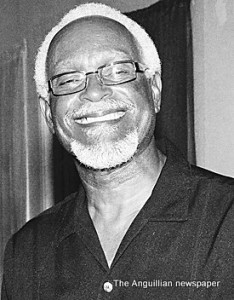
As we commemorate Father’s Day, there is a universal question raised by Job in the book of the Bible which bears his name. The question is “Where is my Father?” We recall that Job, described as a righteous man, lost his livestock, his children and then his health. He was a broken man by the swift hand of fate and he fell from wealth and esteem to poverty. In that state of calamity, he cried out: “Where is my Father?”
Firstly, note that he did not ask “where is my mother?” Mother was the ever-present nurturer who gave direction and meaning to his relationships. Now in the hour of dire need, he needed the other half of parenting, namely, the protection and affirmation which Father is adorned by nature to provide. When children, especially boys, are denied that fatherly dimension to their existence, it is found else where – either in truant behaviour, gangs, crime or on the assault of the female.
How do we correct this sordid state of affairs? Three things come to mind. Firstly, all the religious and social institutions must encourage men to recognize the awesome responsibility placed upon them as fathers and care-givers through addresses, seminars, conferences, mentorship programs etc. Secondly, because of our past failures, there must be a private and public confession of our collective failure, and a commitment to be the guardian of our children, especially the boys. An actual commitment card should be signed in the presence of children and indeed the entire family. The Christian Council and the Evangelical Association should lead in the organization of a commitment service which could take place in a worship service for those who are religious. Thirdly, let us learn from the story of the Prodigal Son as recorded in Luke Gospel Chapter 15. It could be daughter as well. The young man left home with all possibilities of success lined up: money, ambition and probably good looks. Then, in the midst of partying, a famine arose. Money became valueless and friends deserted him. As he fed pigs to prevent death by starvation, he remembered home where he was a son, nurtured and guided by the family. He made the decision to return home.
The most important dimension to the story is often overlooked, namely, the Father was looking. That is the greatest need among men in our Caribbean region. We have abandoned the hunger of the heart to look for our fallen sons and daughters. Remember, the parents who seek their children will more often than not find them. In seeking our children, we have already opened our hearts to offer the gift of welcome and forgiveness. The best news we could hear on Father’s Day is: “My son, my daughter, you have been forgiven.” That is the therapy our troubled boys and girls need to hear from Fathers. Happy Father’s Day. Be a Real Dad. That is what real Dads do.








